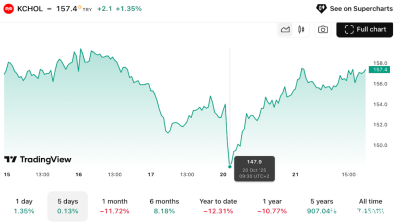Former populist premier Robert Fico has won an unexpectedly big victory in Slovakia's snap election on September 30, scoring 22.9% against the liberal Progressive Slovakia's 18%.
The result goes against exit polls which had predicted Progressive Slovakia had edged ahead. On Monday President Zuzana Caputova will now give Fico the crucial first chance to form what would be his fourth government.
Whether Fico succeeds will depend on the stance of Robert Pellegrini, his former lieutenant, who has formed his own centre-left Hlas party and now sits in third place at 14.7% after being squeezed by the two leading parties.
Fico said in a press conference on Sunday that he saw a "comfortable" majority with Hlas and the ultranationalist Slovak Nationalist Party (SNS), which won 5.6%, a coalition which would have 79 seats in the 150-member parliament (Smer 42, Hlas 27 and SNS 10).
Former media advisor to ex-premier Eduard Heger and liberal daily DennikN columnist Ivan Stulajter told bne Intellinews that Fico and Pellegrini are now "key people" for the formation of the future cabinet and that it is "highly probable" that the two will cooperate.
Earlier, Pellegrini had indicated he preferred not to co-operate with Fico, but he appears to have veered back to him in recent weeks and has been criticising the Progressives. There has been speculation that he personally will not take part in the government but will agree with Fico to form a government together and to be their joint candidate to succeed Caputova as president next year.
Coalition building could still be protracted given the spread of the votes among seven parties and the divisions between them. Before a coalition is formed, the technocrat government of Ludovit Odor will stay in office, but without the power to pass any significant reforms.
There are fears that if Smer returns to power Fico could ally with Viktor Orban’s Hungary to resurrect the Visegrad Group (V4) of Central European countries in order to obstruct the policies of the European Commission, including aid for Ukraine and further sanctions on Russia. Hungarian Foreign Minister Peter Szijjártó congratulated Fico on Facebook: "His victory offers a great chance to strengthen the V4 alliance. Congratulations and good luck!”
The Slovak election comes just two weeks before the Polish general election, in which there is a tight race between Jaroslaw Kaczynski’s ruling Law and Justice Party (PiS) and Donald Tusk’s Civic Platform. If Kaczynski were also to be-re-elected, the three populist governments could make it much more much difficult for the European Union to move towards majority voting and to reach deals by the end of the year on an increase to the bloc’s budget, a new agreement on rules governing member-state budgets, a decision on beginning accession negotiations with Ukraine and Moldova and the formal implementation of a new system for handling asylum seekers and migrants.
Opponents also claim Fico could follow Orban’s playbook by trying to hollow out Slovak democracy, If Fico manages to return to power, there are worries that he could undermine the country’s judiciary and police in an effort to safeguard Smer politicians and Smer-linked officials from ongoing criminal investigations. Fico already announced on Sunday that he would replace the police chief and special prosecutor.
Furthermore, opponents fear that he is determined never to allow such attacks to happen again, and he will now follow the Orban playbook of dismantling the country’s democracy and attacking the independent media and civil society organisations that he blames for the protests that brought him down in 2018.
In her editorial commentary, editor-in-chief of liberal daily SME Beata Balogova, wrote that "the spread of fear secured a victory for Fico", in reference to Smer's aggressive campaign on social media. "Enough people came to trust Fico in that liberalism and human rights can be a greater threat to a citizen than blossoming corruption and sympathy to [Russian President Vladimir] Putin's regime," Balogova wrote.
Her colleague, investigative journalist Eva Mihockova, told bne Intellinews, "we've witnessed a victory of an anti-democratic campaign based on igniting hatred and fear of everyone – from bears to migrants and liberals".
Stulajter also did not rule out that Fico could try to bring the Christian Democratic KDH on board "to disperse foreign policy concerns" which a coalition with SNS would raise. The conservative KDH will return to the parliament after obtaining 6.8% of the vote and 12 seats.
KDH's leader, Milan Majersky, previously ruled out cooperation with Smer, but Stulajter said KDH's participation in the coalition talks "would depend if and what offer" would be made to the party. Pellegrini has also supported the idea of Smer and Hlas forming a coalition with the KDH, rather than the SNS.
Leader of Progressive Slovakia (PS) Michal Simecka thanked everyone who came to the elections and highlighted that PS registered the "historically best result of any liberal party in Slovakia". PS won 32 seats.
Support for Progressive Slovakia, which failed to enter parliament in 2020, had surged in recent weeks as the election became polarised between it and the left-leaning Smer party, with the liberal party expected to have done well among young urban voters. The voter turnout was 68.5%, 3 percentage points up from the previous election in 2020.
The neoliberal SaS of Richard Sulik re-entered the parliament with 6.3% and 11 seats, while the populist OLaNO-led coalition, which led the last government, saw its vote sink to 8.9% and 16 seats. The chaotic rule of OLaNO's leader Igor Matovic has been blamed for paving the way for Fico's return. The Democrats of his successor, Eduard Heger, won't be in the parliament after they failed to unite fragmented smaller center-right parties.
One big surprise in the election was the failure of the neo-fascist Republika party to pass the 5% threshold to enter parliament. Their voters appear to have shifted to Fico's Smer in the final weeks of the campaign.
Fico has tried to paint himself as the stability and order candidate, someone who will put an end to the chaos of the last centre-right government, and who is much better experienced than Simecka, who only took over as PS party leader two years ago.
One of the key issues in the election was Russia’s invasion of Ukraine, with Fico calling for an end to Slovak military aid and peace talks now. He also opposes further sanctions on Russia and Ukrainian membership of Nato.
Fico also says that the war is to blame for the sharp rise in food and energy prices that have hurt Slovak living standards. He has pledged to protect Slovaks from further hardship by an array of populist promises, despite the country’s serious budget deficit of close to 7% of GDP this year.
He has also attacked the government over the ongoing wave of irregular migrants. On Sunday Fico said it will be necessary to use force to suppress "illegal" migration. "They won't be pretty pictures," he told a press conference.
The campaign was plagued by disinformation on social media, including a deep fake recording of Simecka calling for higher beer prices.
President Caputova has been repeatedly warning that her country is in an “information storm”, saying there is “not only polarisation but fragmentation within our society”.
In May Bratislava-based think-tank Globsec published a survey showing that only 40% of Slovaks think Russia was responsible for the war in Ukraine by attacking Ukraine, while at the same time, 34% think the West is responsible by provoking Russia.
News

Grand master mason arrested as part of Turkey’s Can Holding investigation
Second wave of detentions executed.

Istanbul prosecutors summon Koc official and Akfen boss in Imamoglu investigation
Word of move sparked volatility in stocks.

Ukrainian military strike for first time disrupts operations of Western oil majors
Drone attack damage caused to Russian gas processing plant forces scaling back of output at Kazakh field partly owned by Chevron, Shell and Eni.
_Foto2_Divulgação_Foresea_(1)_1761062969.jpg)
Petrobras secures controversial Amazon drilling licence ahead of COP30 climate summit
Brazil's Petrobras has obtained authorisation to drill an exploratory well near the mouth of the Amazon River, sparking fierce criticism from conservationists just weeks before Brazil hosts UN climate talks.
_1761050969.jpg)



